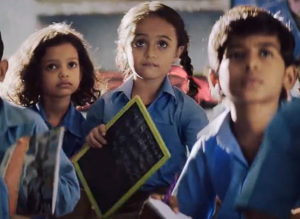 On 3 December 2018, the United Nations General Assembly adopted with consensus a resolution proclaiming 24 January as International Day of Education, in celebration of the role of education for peace and development.
On 3 December 2018, the United Nations General Assembly adopted with consensus a resolution proclaiming 24 January as International Day of Education, in celebration of the role of education for peace and development.
As the world education community gathered in Brussels for the Global Education Meeting, the UN General Assembly voiced a strong message recognizing the foundational role of education for peace and development.
The adoption of the resolution 73/25 “International Day of Education”, co-authored by Nigeria and 58 other Member States, demonstrated the unwavering political will to support transformative actions for inclusive, equitable and quality education for all.
By doing so, the international community reiterated that education plays a key role in building sustainable and resilient societies, and contributes to the achievement of all other Sustainable Development Goals as it dedicated a special day to celebrate education worldwide.
With a view to enhance international cooperation in supporting the efforts towards the realization of Sustainable Development Goal 4, the resolution called on all stakeholders including Member States, organizations of the UN system, and civil society, non-governmental organizations, academic institutions, the private sector, individuals and other relevant stakeholders to observe the International Day of Education.
UNESCO, as the specialized United Nations agency for education, will facilitate the annual observance of the Day in close collaboration with main education actors.
Introducing the resolution to the General Assembly, H.E. Tijjani Muhammad Bande, Ambassador and Permanent Representative of Nigeria to the United Nations, underscored that proclamation of January 24 as the International Day of Education is an important step in order to promote education as a critical aspect of sustainable development. He emphasized that education is not only a human right, but a path for sustainable development.
Prior to adoption of the resolution, on 30 November 2018, the Permanent Missions of Ireland, Nigeria, Singapore and the State of Qatar, together with UNESCO, UNICEF and UN Women organized a side-event of to create awareness and build momentum for the adoption of the resolution. The high-level meeting brought together distinguished ambassadors, policy-makers, representatives of diplomatic community and UN system, civil society and private sector.
Ms Marie Paule Roudil, Director of UNESCO New York Office, stressed that education is not only a key goal on its own in the 2030 Agenda for Sustsinable Development but the one goal that gives people the means to realize it. “Gaining the knowledge, skills, values and attitudes to out sustainable development into practice and craft innovate solutions is crucial for global goals”, she said.
She also outlined the contribution of education to poverty eradication, improving health outcomes, promoting gender equality, environmental sustainability and building peaceful and resilient societies, while sharing the findings of the latest Global Education Monitoring Report “Building bridges, not walls”.















